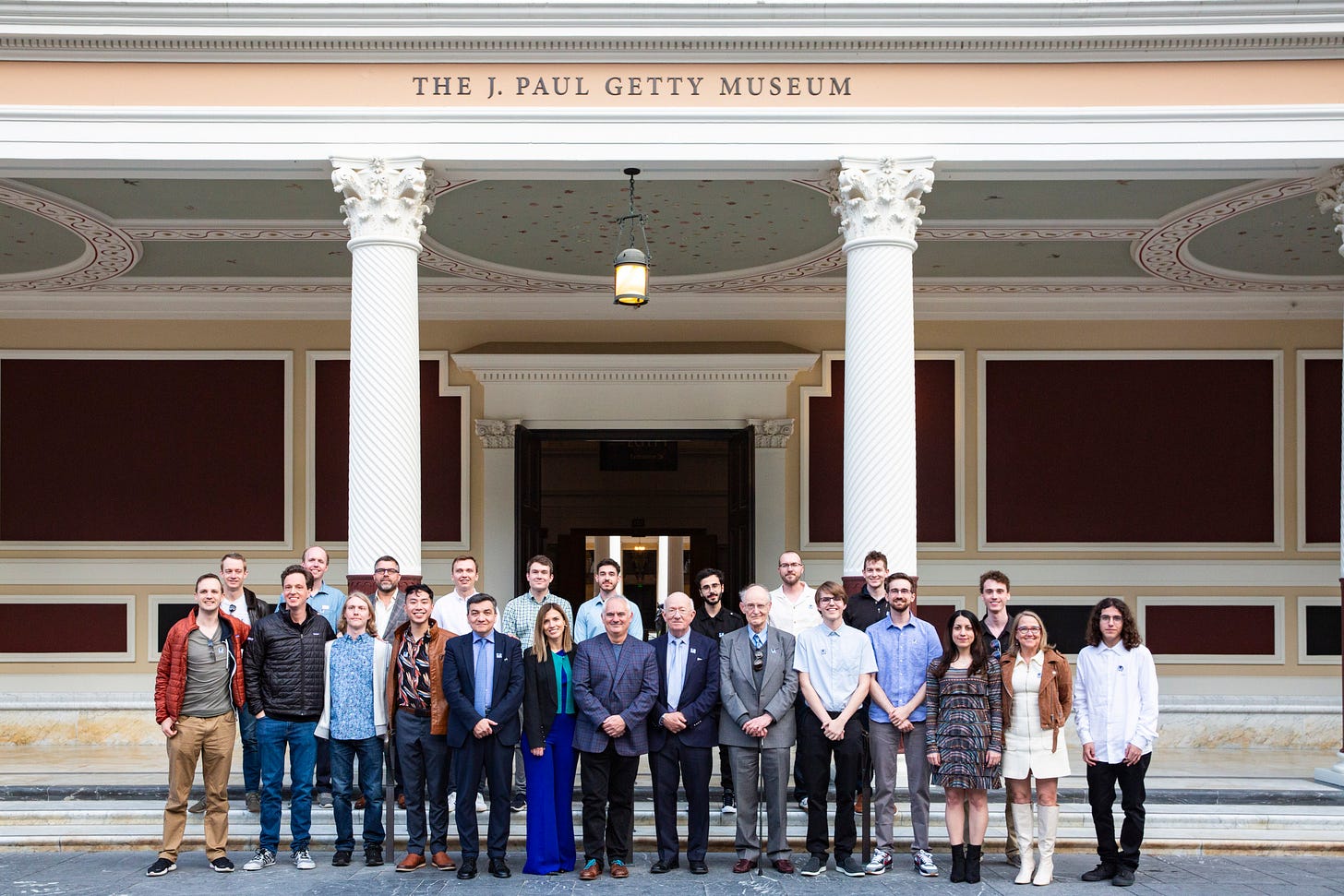Vesuvius Challenge is hiring!
Join our team to help recover the hidden texts of the Herculaneum scrolls
The Vesuvius Challenge team is hiring for two technical teams to pursue our mission of reading the Herculaneum papyri:
Computer Vision and Geometry Applied Research: push the most promising research directions to help us recover complete texts from these scrolls
Platform Engineering: build the infrastructure to support a groundbreaking research community and team
We are interested in filling multiple positions for each role above. Full job postings are listed below, and can be found at https://scrollprize.org/jobs. Team members forfeit the ability to apply for Vesuvius Challenge prizes (though many have won them in the past!), and instead work at the direction of team leadership.
We’re a distributed team laser focused on reading this lost library from antiquity. Join us, or send along your interested friends and colleagues!
Computer Vision and Geometry Applied Researcher
The Vesuvius Challenge applied researchers advance the frontier of the most promising research directions from our community, to keep making continuous progress on the most promising research avenues in virtual unrolling and related problems.
Overview
If the Vesuvius Challenge community performs a breadth-first search of research ideas to help us read the scrolls, this role performs depth-first search. We (and you!) are laser focused on solving the remaining hurdles to extract these hidden texts from their scroll confines.
We process volumetric CT data of scrolls, and are working to solve a challenging segmentation problem (mapping the surface of the crumpled scroll within the volume) as well as ink detection (using machine learning to detect the subtle presence of ink within the scan). This role will pursue the most promising methods on the data, adapt to follow emerging directions, and share the results along the way with our technical community.
Example tasks might include:
Use computational geometry to fit 3D surfaces to image data
Process high-dimensional images using classical and machine learning methods
Optimize data formats for storage space, accuracy and accessibility
Implement and train neural networks for segmentation of 3D image data
Process non-watertight manifold triangular meshes and other geometrical objects
Optimize existing tools to run faster or with fewer resources on large image datasets
Polish and publish community-developed proofs of concept
Perform deformable registration of 3D objects
Analyze and validate pipeline steps with complex metrics, and define those metrics
Qualifications:
Image/geometry processing experience, ideally with large or high dimensional datasets
Experience implementing and training neural networks
Generalist/excited to pursue flexible directions
Previous research experience in a related domain (PhD-level, but PhD not required)
To Apply
Send your resume, cover letter, and examples of relevant projects to jobs@scrollprize.org. Include "Applied Researcher" in the subject line.
Platform Engineer
The Vesuvius Challenge platform team builds the tools that make researchers and contestants more productive. This includes libraries, visualizations, annotation tools, and data organization & accessibility.
Overview
Vesuvius Challenge produces and maintains multi-terabyte CT scans of ancient scrolls, with the goal of multiplying this dataset significantly in the coming year. We serve this data to a technical community around the world, and also support an in-house research team.
Presently, data is generated and organized on an ad hoc basis, and requires tedious and large downloads to access. We aim to make the datasets more easily accessible to our team and community via strengthened organizational schemas and streaming them via libraries.
Responsibilities include:
Develop tools to support CT scanning
Automating existing photogrammetry workflows
Automating 3D scroll case design
CT data reconstruction and image post-processing
Data transfer and organization
Maintain libraries to access data in C++, C and Python
Perform semantic and instance segmentation of 3D images
Provide easy access to trained models (semantic segmentation and ink detection)
Available via HuggingFace and/or our libraries
Enable easy and accessible visualization of raw data and derived formats
Enhance annotation tools/GUIs to support data annotation team
Integrate components of software pipelines into cloud infrastructure, enabling on-demand execution
Qualifications:
Appreciates well-structured schemas in multi-terabyte datasets
Experience shipping finished products
Fluent in basic cloud infrastructure and comfortable with basic image/geometry processing
Experienced in C++ and/or Python
Experienced building web frontends
To Apply
Send your resume, cover letter, and examples of relevant projects to jobs@scrollprize.org. Include "Platform Engineer" in the subject line.


